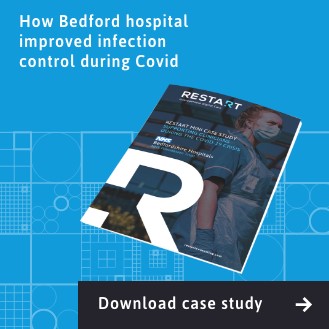Acknowledging Alliances and the HSJ Partnership Awards
This year the NHS has been under the most extreme pressure that it has faced in recent history. Resources have never been shared, or redeployed, to the extent they have been during the ongoing Covid pandemic.
That’s why the HSJ Partnership Awards couldn’t be more important for teams to come together to join forces and show their gratitude for those who continue to provide the best possible care under the most arduous circumstances.
The HSJ Partnership Awards aim to hearten the systems that join the NHS together. Healthcare professionals do not hide the fact that their motivation is preserving the life of their patients. Yet, the NHS is a complex world consisting of:
- hundreds of different IT systems
- thousands of staff with varying processes
- millions of patients with complex conditions
These complexities often make the job at hand seem impossible and can have a harmful knock-on effect while caring for patients.
The HSJ Partnership Awards can help by recognising and praising teams and organisations that have come together – sharing how they manage their work and which digital technologies they have used, to improve patient care.

New category: Local Covid-19 Response Partnership award
The number of award categories speaks volumes and evidences the expansive range of care settings and organisations across the NHS. The infrastructure, culture and dedication needed to speed up digital innovation are enormous. The partnership awards, designed to cover the crucial position private companies play in the health and care ecosystem, make sure successful projects are shared and scaled.
There are 17 categories in total, for example, ‘Best Educational Programme for the NHS’, ‘Most Effective Contribution to Clinical Redesign‘, ‘Best Healthcare Provider Partnership with the NHS‘, ‘Best Not for Profit Working in Partnership with the NHS‘, find the full list here.
There are also five new categories, one being ‘Local Covid-19 Response Partnership Award‘, which we are delighted to have entered in partnership with Bedford Hospital.
Infection control was an immediate priority for Bedfordshire NHS Foundation Trust during their Covid response. They took the decision to limit the volume of paper moving around the trust to reduce footfall and staff interaction. Many clinics stopped requesting and receiving any patient paper records. For clinicians who had always relied on paper records to support patient consultations, this was a huge challenge – not least for those who were working in unfamiliar departments, with previously unknown patients, covering for staff who were either unwell or had been redeployed elsewhere.
At the same time, the trust needed to rapidly scale up to support the demand for respiratory consultants. Within a couple of days, the trust had created a 24×7 on-call rota for all respiratory consultants and doctors to provide round the clock diagnostic support for those treating Covid patients. The respiratory team needed immediate secure access to patient information, both on and off-site, to enable rapid assessment and diagnosis and support the hugely challenging workload.
As the implications of the pandemic on clinical service delivery became rapidly apparent, the decision was taken to rapidly up-scale the use of their interoperable clinical record IMX-CR (version 3 of Viper360) to replace clinician reliance on paper records and enable safe and secure working from any location.
The foundation for effective, paperless access to patient data was already strong as a result of the adoption of the interoperable clinical record, IMX-CR. A core component of the trust’s digital transformation programme has been the creation of a single source of real-time information to support both clinical and administrative roles. Working with ReStart over the past seven years, Bedfordshire has overcome the limitations of multiple disparate data sources that make it difficult for clinicians to gain access to the required data in a timely fashion.
“The need for multiple passwords to access patient information across different systems can be overwhelming; it is the patient who should be front of mind, not the many passwords clinicians are trying to remember. IMX-CR gives rapid log in to all that data via a single interface, speeding up the time it takes to access the information. With IMX-CR, a clinician can see key events and information in a patient’s history, including discharge letters, in one page, instantly, providing all the information needed to help make the best possible decision for the patient.”
Josh Chandler, Associate Director of IT
Patient searches in IMX-CR increased by 82% from January to August 2020. Bedford has been on a digital transformation journey for many years. The speed at which clinicians and administrative staff have adopted technology as a result of Covid-19 has accelerated the project.
A critical time to share best practice
The HSJ partnership awards present an opportunity for individuals, teams, and organisations that work in the NHS to come together to celebrate their efforts. The relevance could not be more significant, when day-to-day challenges, such as minimising the use of paper as part of Covid response to improve infection control, has highlighted.
We want to acknowledge all the individuals, and organisations taking part in the awards this year, and wish them the best of luck to be shortlisted on the 14th of December. Being recognised for the incredible work that the entire country is so grateful for, is essential for people to keep on going, with their focus on the best possible care.
We hope to see you at the awards in the summer of 2021.
For more information download the case study, or get in touch to see how we can help.



